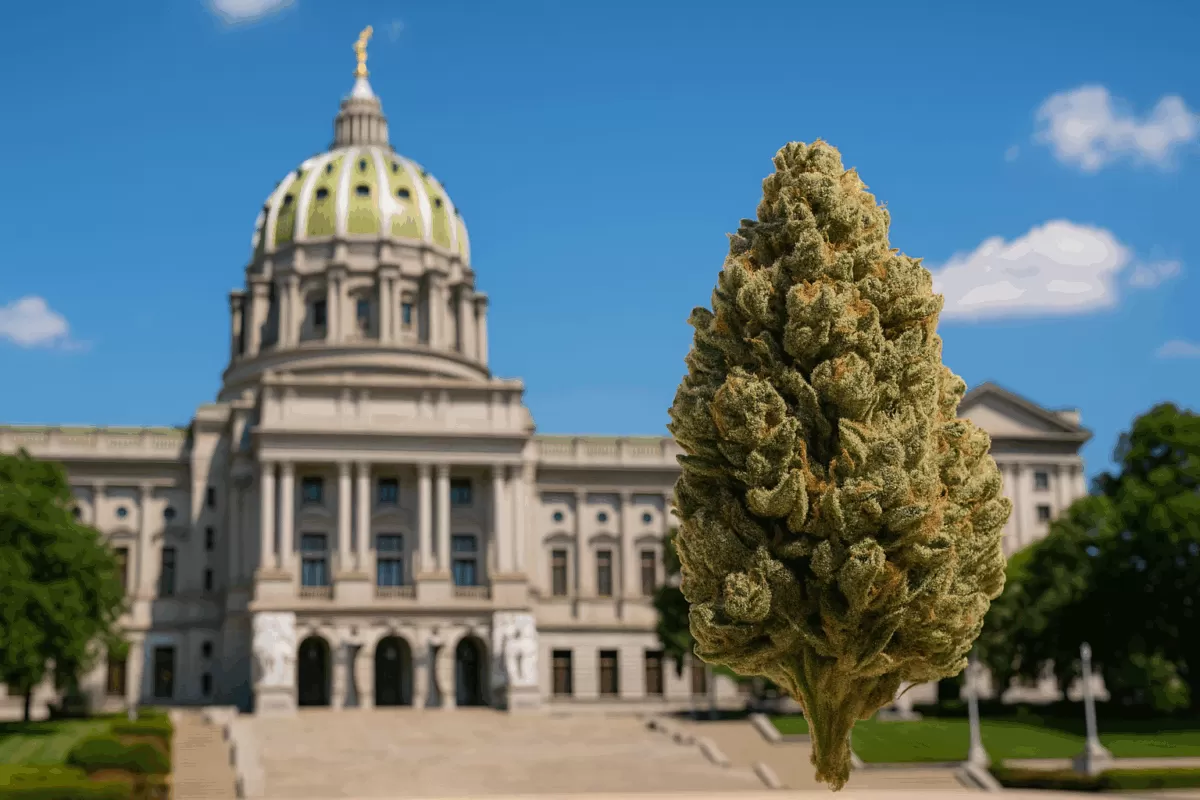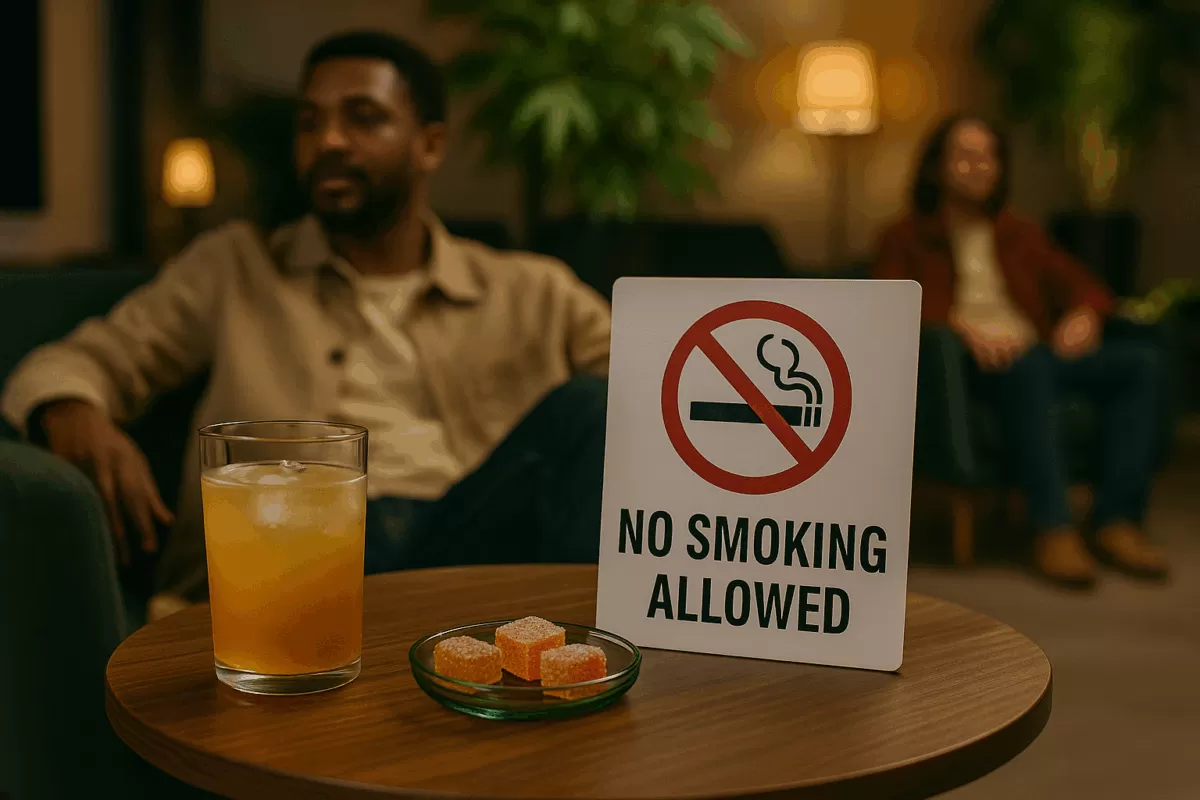The More Act, also known as the Marijuana Opportunity Reinvestment and Expungement Act, is historic.
Unlike any bill passed in recent memory, the MORE Act does more than the rest — it deschedules and decriminalizes cannabis at the federal level. However, the proposed removal of cannabis from the Controlled Substances Act isn’t the most crucial part.
The More Act is game-changing because it presents a new opportunity to target individuals during the decades-long War on Drugs. However, last-minute changes to the bill weakened its bite and made the MORE Act symbolic instead of revolutionary.
Read along to understand if the MORE Act is a milestone for people of color or just another symbolic act.
Creating New Opportunities For People of Color
The MORE Act stands for the Marijuana OpportunityReinvestment and Expungement Act.
Let’s discuss each in detail to understand better how the MORE Act benefits people of color that have long been targeted and unjustly incarcerated during the War on Drugs.
However, we must note that this is what the MORE Act represented before the last-minute amendments to the final bill.
One of the opportunities listed in the MORE Act is the newfound access to the Small Business Act.
Specifically, small business owners who are economically or socially disadvantaged are eligible for a loan under the Small Business Act. In other words, people of color who were once discriminated against due to their social or economic standing will have access to loans.
The cannabis opportunity program, in essence, lowers the barrier-for-entry into the cannabis industry for people of color who do not have the necessary capital to start a cannabis business.
The Equitable Licensing Grant Program
Another major step in the right direction is the equitable licensing grant program.
The equitable licensing grant program decreases the barrier for cannabis licensing and employment opportunities in the cannabis industry for individuals affected by the War on Drugs.
Here’s a list of who is eligible under the equitable licensing grant program:
The MORE Act contains an opportunity trust fund finances various programs, such as:
The opportunity trust fund is funded by a 5% tax that’s added to all cannabis sales. As such, 5% of each cannabis sale will benefit communities and individuals that have, and still are, affected by the War on Drugs.
Furthermore, the MORE Act also protects immigrants from being deported or denied asylum due to possession of cannabis.
The MORE Act’s protection comes at a time of much-needed immigration reform. Since the beginning of the Trump Administration, countless families have been separated and left in inhumane conditions.
By passing the MORE Act, immigrants will no longer trigger automatic deportation or a denial of asylum by consuming or possessing cannabis.
Expungement, Sealed Records, and Re-Sentencing
One of the most critical aspects of the MORE Act is the expungement of past marijuana-related convictions.
The MORE Act states that each state must immediately begin a comprehensive review and expunge non-violent marijuana-related offenses. In other words, individuals who were unjustly arrested before the MORE Act are eligible to clean their criminal record.
Furthermore, the MORE Act allows individuals to have their records sealed, which prevents their criminal history from being flagged by background checks during the employment process.
However, the expungement and sealed records option are valid for those who are no longer under an active sentence.
For those currently in prison due to a non-violent cannabis-related offense, states would be required to review each case immediately. The result would be either re-sentencing or the immediate release from prison, where an individual could then apply for their record’s expungement.
How Does The MORE Act Decriminalize and Deschedule Cannabis?
The Controlled Substances Act of 1970 is the backbone of the War on Drugs.
Signed into law in 1970 by Richard Nixon, the CSA is organized into five scheduled tiers, with the first tier containing the most “addictive” substances.
Schedule I controlled substances are:
As such, minor possession of any of these drugs resulted in severe penalties, such as long-term jail sentences and fines that resulted in missed employment opportunities.
If passed, the MORE Act would retroactively remove cannabis from the Controlled Substance act entirely. By removing cannabis from the CSA, the MORE Act will have the power to give back to those directly or indirectly impacted by the War on Drugs.
The Last-Minute Changes That Nullify The MORE Act
A week before the Congress’s scheduled vote, the more act underwent a few but significant adjustments.
The most significant change was in regards to individuals with felony charges. The change explicitly says that federal regulators may bar felons from pursuing and obtaining a cannabis business license.
During the War on Drugs, anyone found in possession of cannabis was likely to experience a felony charge, especially if you are Black or Brown. Therefore, the vast majority of people of color who were unjustly incarcerated during the War on Drugs are once again left out.
In other words, the last-minute changes to the MORE Act discriminate against the majority of people whom the bill is supposed to represent.
At this juncture, many cannabis reform groups are no longer in support of the MORE Act as it stands. With this in mind, the MORE Act looks more like a symbolic act that appeases the overall cannabis industry, instead of the Black and Brown community that’s the target of constant police oppression.
More than likely — no.
Although Congress made history with the passing of the MORE Act, it still needs Senate approval.
Sadly, the Senate has a Republican majority, which means the MORE Act is nearly guaranteed to fail. Democrats have long-signaled that the time is now to introduce cannabis reform that also assists those affected by the disastrous War on Drugs. Alternatively, Republicans are heavily against any type of marijuana-based reform.
However, the last-minute changes completely changed the direction of the MORE Act. It’s possible that the amendments were inserted to appease certain conservatives in the Senate; however, at what cost?
Unless the stipulations regarding individuals with felony charges are removed, the MORE Act will never be anything more than symbolic.
As it stands, the cannabis industry is dominated by White men that have stepped on the backs of people of color. Until people of color are unequivocally integrated into the cannabis industry, the MORE Act is practically useless.
Regardless if the Senate decides to pass the MORE Act or not, lawmakers must realize that the United States’ War on Drugs targeted people of color. Therefore, the MORE Act must be adjusted to present real opportunities for Black and Brown communities. By doing so, the MORE Act would offer justice for individuals and much-needed diversity in the cannabis industry.












